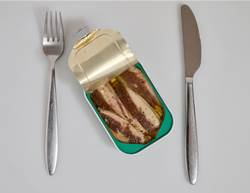
Few things are more frustrating than falling short of a goal you’ve put everything into. It can leave you doubting your efforts and wondering if the end result is even possible.
But according to new research from the CSIRO, it might not be your dedication that’s failing you − it could be the goal itself.
The analysis of over 22,000 members of the CSIRO Total Wellbeing Diet revealed that while most participants set ambitious weight loss goals (of around 20 kg) for themselves at the start of the program, only three per cent were able to achieve them within 12 weeks.
In contrast, when goals were tailored to individuals through the program – factoring in things like starting weight, age and lifestyle – success rates skyrocketed, with 47% of participants reaching their targets and losing up to 11kgs in 12 weeks.
The data shows that setting personalised (and realistic!) goals from the outset increases your chances of weight loss success. Hitting those early milestones can boost confidence and motivation, creating a positive cycle that keeps you moving towards bigger, long-term goals.
Stretch is best
The analysis also highlighted the power of stretch goals – those slightly more ambitious, but still achievable targets – in driving greater early success. The research showed stretch goals that were personalised to participants' individual journeys helped them achieve significantly more weight loss in the first 12 weeks, with many sustaining that progress over 12 months.
Stretch goals also proved especially effective for those with more weight to lose. Among those starting in the obese weight category, 20 per cent achieved their stretch goal, losing 12 kg in just 12 weeks – 4 kg more than those who achieved a standard, but still personalised, goal.
Tips for setting yourself up for weight loss success in 2025:
Trust the science
- There’s no one-size-fits-all approach. Personalised goals consider your starting weight, age, gender and lifestyle to set realistic yet challenging targets.
- Overly ambitious, self-set goals can be frustrating when they are not achievable. Work with tools such as AI to ensure your goals are aligned with your capacity and lifestyle.
Start small for big wins
- Early momentum matters. Focus on achievable milestones that build confidence and motivation. Celebrating small victories creates a positive feedback loop that keeps you on track.
Embrace stretch goals
- Set and work towards more ambitious – but realistic – targets that are tailored to your circumstances, and push you a little more to see what’s possible.
Measure progress, not perfection
- Progress isn’t just about the scale. Track other indicators of health like energy levels, fitness milestones, and improved eating habits to stay motivated.
Focus on long-term habits
- Weight loss is not just about short-term wins but building sustainable habits. With the right guidance and a clear plan, you can maintain a healthy weight and lifestyle well into the future.
Don't compare yourself to others
- Reflect on your own journey and goals often. Focus on the positives and your achievements and learn from your mistakes.
- No two people are the same, so no two weight loss journeys will be the same either.
Use the tools
- Weighing yourself regularly, using the meal plan, and tracking your food and drink intake are the three key behaviours that our research has shown to have the biggest impact on weight loss.
Written by Nicole Pritchard, a CSIRO Total Wellbeing Dietitian








.jpg&h=193&w=250&c=1&s=1)
